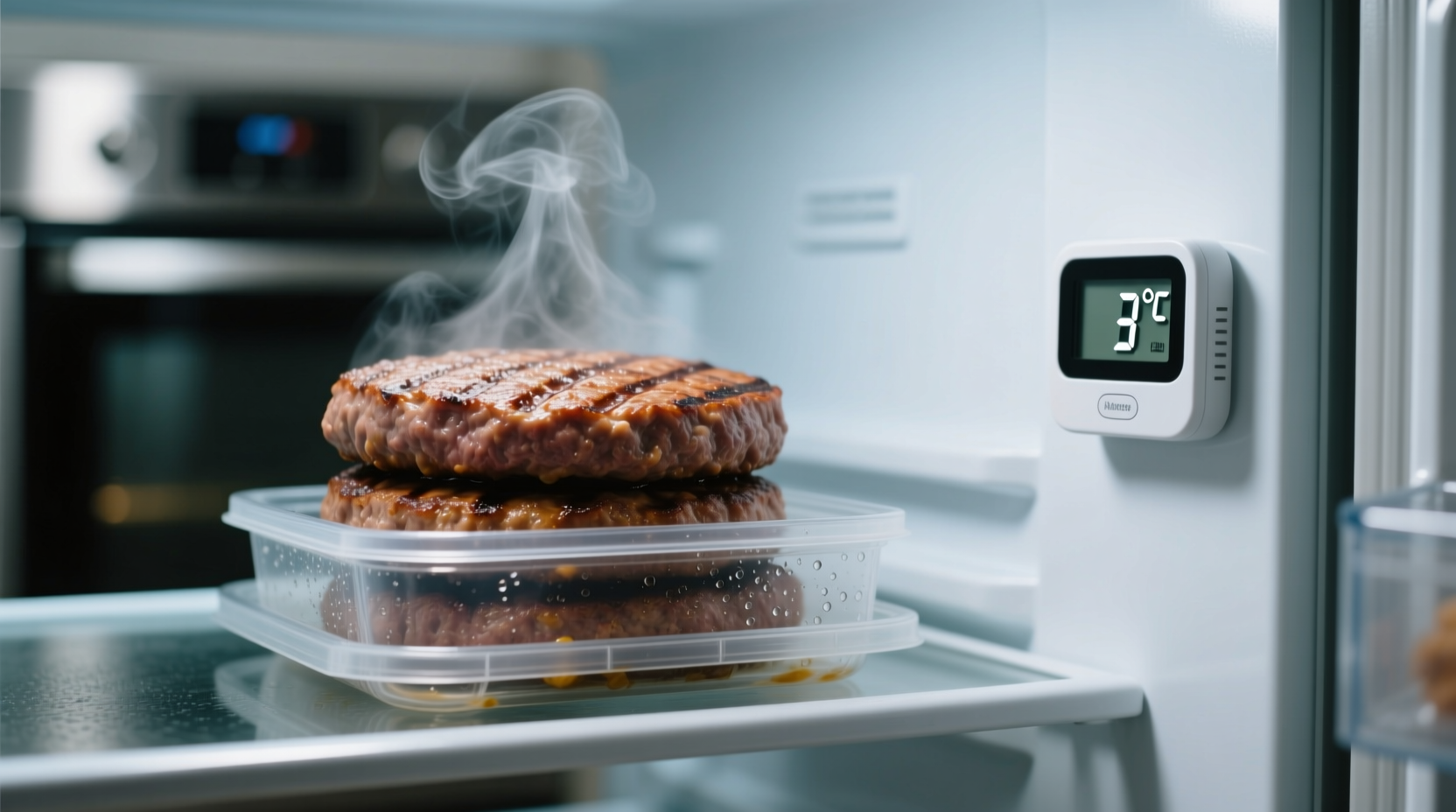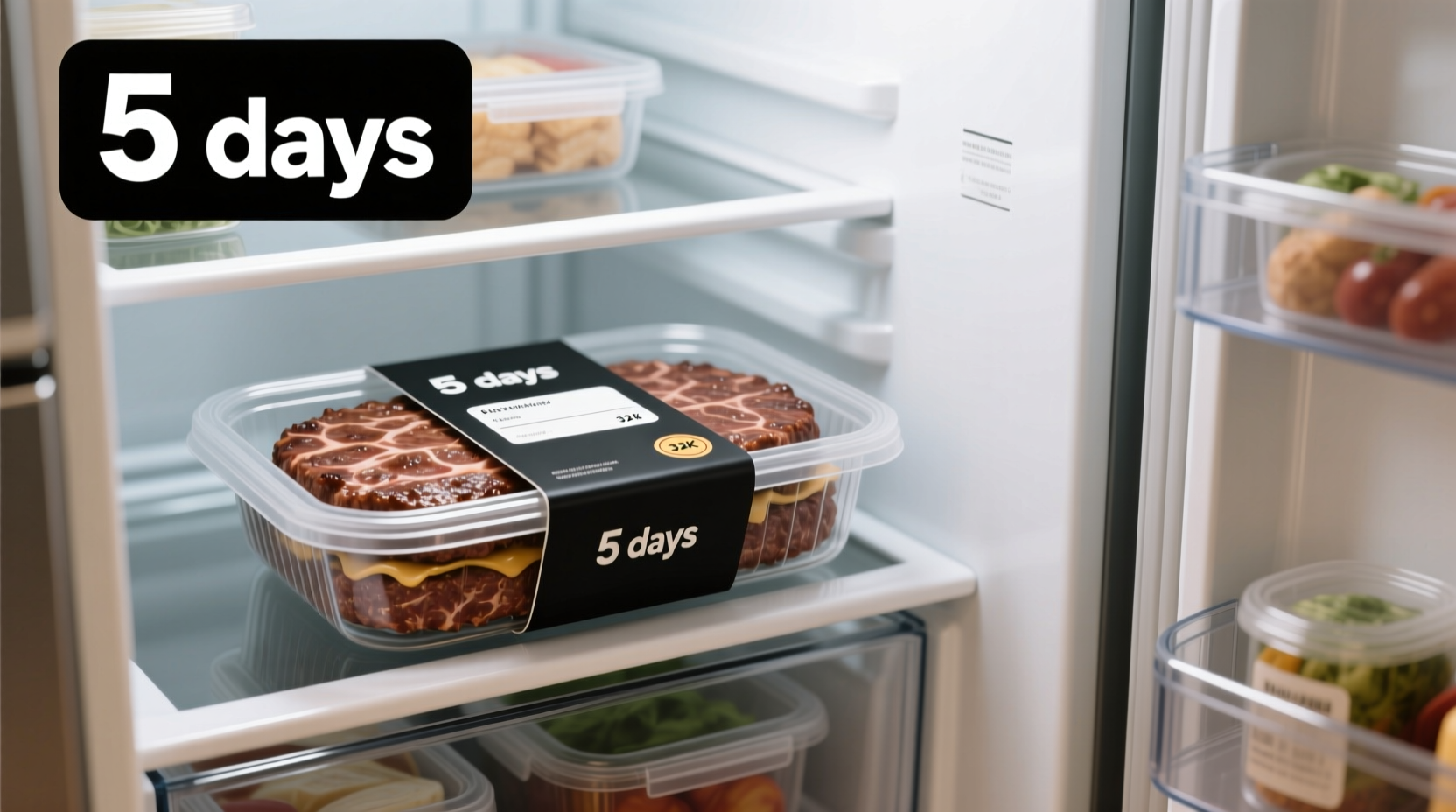Every year, millions of Americans experience foodborne illnesses from improperly stored leftovers. When you've cooked a batch of delicious burgers, knowing exactly how long that cooked hamburger meat remains safe in your refrigerator isn't just about avoiding waste—it's crucial for protecting your family's health. This guide delivers science-backed storage timelines, practical preservation techniques, and clear spoilage indicators so you can enjoy your cooked ground beef safely.
The Science Behind Cooked Hamburger Meat Safety
Understanding why time limits matter begins with bacterial growth patterns. Cooked hamburger meat enters the "danger zone" (40°F-140°F) where bacteria like Staphylococcus aureus and Listeria monocytogenes multiply rapidly. Unlike whole cuts of meat, ground beef's increased surface area exposes more tissue to potential contamination during processing.
The USDA Food Safety and Inspection Service confirms that while cooking destroys most pathogens, surviving bacteria begin multiplying immediately after cooking if not cooled properly. This explains why the standard 3-4 day refrigerator guideline exists—it represents the window before bacterial counts reach potentially dangerous levels.
| Storage Method | Optimal Temperature | Maximum Safe Duration | Quality Indicator |
|---|---|---|---|
| Refrigerator | 40°F (4°C) or below | 3-4 days | Color remains brown-gray, no slime |
| Freezer | 0°F (-18°C) or below | 2-3 months | No freezer burn, retains texture |
| Room Temperature | Above 40°F (4°C) | 2 hours max | Danger zone—discard immediately |
Proper Cooling and Storage Techniques
How you handle cooked hamburger meat immediately after cooking significantly impacts its safe storage duration. The FDA Food Code specifies that cooked foods must pass through the danger zone (140°F to 70°F) within 2 hours—or 1 hour if ambient temperature exceeds 90°F.
Follow these professional storage steps:
- Divide and conquer: Transfer cooked patties to shallow containers no deeper than 2 inches to accelerate cooling
- Airtight is right: Use vacuum-sealed containers or rigid food storage containers with tight-fitting lids (avoid flimsy plastic wrap alone)
- Location matters: Store on middle refrigerator shelves, not in door compartments where temperature fluctuates
- Thermometer check: Verify your refrigerator maintains 40°F or below using a standalone appliance thermometer

Recognizing Spoilage: Beyond the Calendar
While the 3-4 day rule provides a safety baseline, actual spoilage depends on multiple factors. Trust your senses as the final authority:
Visual indicators: Grayish-green discoloration, visible mold, or slimy film on surface
Smell test: Sour, ammonia-like, or rotten odors (fresh cooked beef should have a neutral meaty aroma)
Texture check: Sticky or tacky surface when touched (properly stored meat should feel slightly moist but not slimy)
The CDC reports that Staphylococcus aureus can produce heat-stable toxins within 4-8 hours at room temperature that cooking cannot destroy. If your cooked hamburger meat has been in the danger zone for more than 2 hours, discard it regardless of appearance.
Extending Shelf Life Safely
When you need to preserve cooked hamburger meat beyond 4 days, freezing provides the safest option. Follow these professional freezing techniques:
- Portion meat into single-serving sizes before freezing for quicker thawing
- Place parchment paper between patties to prevent sticking
- Remove excess air from freezer bags using the water displacement method
- Label packages with contents and freezing date
For best quality, consume frozen cooked hamburger meat within 2-3 months. The USDA confirms that while frozen food remains safe indefinitely, quality degrades over time due to freezer burn and moisture loss.
Avoiding Common Storage Mistakes
Food safety experts consistently identify these refrigerator storage errors:
- The warm container trap: Placing still-warm patties directly in the refrigerator raises internal temperature
- Container confusion: Using takeout containers with imperfect seals that allow air exposure
- Temperature ignorance: Assuming refrigerator settings match actual internal temperature
- Leftover limbo: Storing meat in the "maybe still good" category beyond recommended timeframes
Remember that "use by" dates on packaging apply only to uncooked products. Once cooked, the 3-4 day countdown begins immediately.











 浙公网安备
33010002000092号
浙公网安备
33010002000092号 浙B2-20120091-4
浙B2-20120091-4